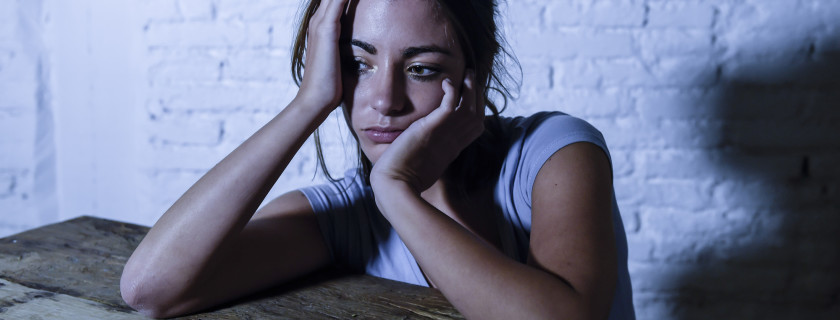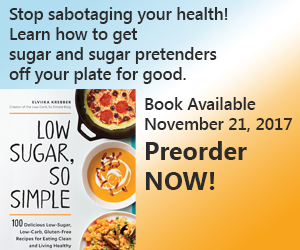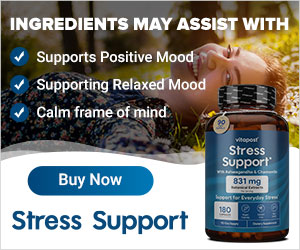The term “depression” gets thrown around a lot these days. We’ve all heard someone tell us they’re depressed when they feel a little bit sad. But that’s not the same thing as clinical depression, in which sufferers are overwhelmed by sadness and powerlessness.
Unfortunately, clinical depression is a common disease. It affects about 300 million people worldwide. Yet, because of social stigma and a lack of resources, many of these individuals don’t seek help.
That is too bad because there are effective treatments for both mild and severe depression. Perhaps you are suffering from depression right now. Your despair and loss of hope are overwhelming, and you don’t know what to do to feel better.
Thankfully, there are steps you can take to begin healing. This is true even when you’ve lost all hope. Let’s see what they are below!
Types of Depression, Their Causes, and Symptoms
Before going over some specific tools, let’s look at the different kinds of depression. Knowing their causes and symptoms can help you on your road to recovery.
Situational Depression
There are many forms of depression, including situational depression. As the name suggests, it results from specific situations or experiences. The loss of a loved one or chronic stress can bring it on.
Fortunately, lifestyle changes and new coping skills can alleviate its symptoms. Individuals with situational depression often recover in about six months. Left untreated, though, it can progress into a much more serious form of depression.
Major or Clinical Depression
Major or clinical depression has varied causes and symptoms. It affects anywhere from 20% to 25% of adults at some point during their lives. Some possible causes include:
- Brain chemistry
- Hormones
- Inherited traits
- Medications
- Traumatic events
- Substance misuse
Situational and major depression have similar symptoms, some of which are:
- Feeling sad, empty, or worthless
- General feelings of hopelessness or pessimism
- Anxiety
- Easily irritated or frustrated
- No interest or joy in usual activities or hobbies
- Fatigue, low energy levels, slower behavior (physically and mentally)
- Restlessness
- Inability to concentrate or make decisions, poor memory skills
- Difficulties sleeping, both oversleeping and not being able to sleep
- Changes in appetite
- Frequent thoughts about death and suicide, attempted suicide
Note that anxiety is listed among the symptoms of depression. Yet, anxiety disorders and depression are not the same disease.
For reasons that are not clear, though, depressed individuals may also have an anxiety disorder or may have had one earlier in life.
An Important Warning
Some of the symptoms of depression are life-threatening. If your hopelessness and sadness are leading you to think about death or suicide, get professional help right away. You can call your mental health professional (if you have one) or your regular doctor.
Another option is the National Suicide Prevention Lifeline. They are always open, with trained counselors available at all hours to assist you.
Finally, if you have hurt yourself already, please call 911 immediately so you can get help.
How To Get Better When You are Feeling Down
Even if you are not contemplating suicide, depression still takes its toll. The exhaustion, the self-doubt, and the way your mind runs over the same thoughts again and again are all debilitating. It’s easy to reach the stage where you feel there is no point to anything, and you’ll never get better.
But you can recover from depression (it’s true! You can). The only thing you have to remember is that your path to wellness might be completely different from someone else’s. The causes of your depression are different, and you respond to treatment options differently.
The rest of this article will summarize ways you can bring hope back into your life. Let’s start with the big question: can I recover from depression without medication? And then we’ll take it from there.
I Need Help, But Do I Need Medication?
Antidepressant medication is a tricky subject. Most of us do not want to take daily medication. We also know doctors hand out meds like candy.
While some depressed people benefit from antidepressant medications, fully a third of patients do not. They also have a long list of side effects:
- Weight gain
- Nausea
- Insomnia
- Fatigue
- Loss of sexual desire and other sexual problems
- Dry mouth
- Blurred vision
- Constipation
As you can see, many of these side effects could themselves lead to depression. For example, a woman placed on anti-depressant medication gains 20 pounds. Of course, she is going to feel awful and sad about her body image, and she may become depressed.
Given this scenario, why would anyone go on them?
Who Should Use Medication? And Who Shouldn’t?
Individuals with mild to moderate depression should not be given medication as the first line of treatment. There are other options listed below, many of which are just as effective.
The situation is different for people with severe, persistent, or debilitating depression. They might need medication temporarily or long-term.
Also, if you are having suicidal thoughts, please take your depression very seriously. Only a healthcare provider can tell you if medication will keep you out of danger.
Please do not feel bad if you have to take medication. That’s like feeling bad for having to take medicine for heart disease. It’s not your fault!
But getting better is a holistic endeavor. Don’t rely on your medication alone. Let’s see what else you need to do to feel hopeful again.
Steps You Can Take When You Have Lost All Hope
Depression makes you tired and sluggish. Performing even the smallest chores can be a struggle.
Take baby steps, and even when the task accomplished is very small, pat yourself on the back. Know that you have taken your first step towards feeling better!
What are some possible baby steps?
1. It’s Easier to Feel Depressed When You Are Alone
Talking with a therapist is one of the best things you can do to overcome depression. Many therapists use a form of treatment called Cognitive Behavior Therapy (CBT), which has been shown to be as effective as medication. CBT helps change negative thinking patterns, which play such a large role in feelings of helplessness.
Having someone to talk to is wonderful on its own. But therapy can also help you identify the primary causes of your depression. Also, therapy can strengthen resilience, enabling you to better handle the next stressful situation in your life.
Besides seeing a therapist, stay in touch with friends and family. It’s easy to isolate yourself, but don’t. Everyone wants to help you, and you also gain new insights and understanding by keeping friends and family close.
2. Focus on Your Diet
The typical American diet, with its high intake of sugar and heavily-processed foods, actually fuels depression. Changing the way you eat, then, should be the first thing you do when you are feeling down.
Eliminate Sugar
Studies have demonstrated the link between sugar and depression, especially in men. Reducing your sugar intake will lessen the severity of your depressive symptoms.
When you consume large amounts of sugar over a long period of time, it changes your brain’s neurochemistry. Sugar causes your brain to release dopamine, also known as the reward neurotransmitter.
If you continually eat large amounts of sugar (which is easy to do nowadays!), your brain begins to release less and less dopamine. You feel worse as time goes on, displaying depressive- and ADHD-like symptoms.
Companies sneak sugar into just about every product. Eating a sugar-free diet requires vigilance (but it is worth it!). Be sure to carefully read the nutritional label of every product before buying it.
No More Gluten
For people with celiac disease, gluten can kill them. It destroys their gut lining, and they need to avoid it completely. Interestingly, people with celiac disease often suffer from depression and have a much greater risk of developing it.
What about everyone else, though? Is there a connection between gluten and depression in the general population?
The answer appears to be yes, as several studies have demonstrated. To ease your depressive symptoms, then, go on a gluten-free diet. That means eliminating all wheat products, barley, rye, and oats (unless they are certified as gluten-free).
Adopt a Ketogenic Diet
Finally, consider adopting a ketogenic diet. It emphasizes low carbohydrates, moderate protein, and high levels of fats. And it appears to have a profound effect on people’s moods, specifically warding off depression.
If you are eating the Standard American Diet and not exercising enough, you don’t feel very good anyway. The ketogenic diet helps you lose weight and gives you more energy. These things alone will make you feel better.
But the ketogenic diet also seems to balance the neurotransmitters GABA and glutamate. Keeping each of them in check directly relieves depression, which makes this diet highly effective for someone with depression.
Don’t Forget About Omega-3’s and Vitamin B12
Omega-3 fatty acids have been studied extensively in connection with brain health. They appear to help a lot with depression and other neurological conditions.
Fatty fish like salmon and sardines is the best source of omega-3’s. It’s also okay to take a supplement if you feel you aren’t eating enough fish.
Studies have also shown low levels of vitamin B12 are linked to depression. Here again, you can take a supplement or increase your intake of seafood.
3. Exercise and Sleep
After you have your diet in order, focus on exercising and sleep. Exercise, in particular, is as effective as medication for some people.
Knowing you should exercise, though, and actually doing it are two different things. Especially when depression makes you feel utterly exhausted.
Start small. Take a short walk around your block. Gradually, you will build up the stamina for more intense activity.
The same goes for sleep. Try your best to get a good night’s sleep, but if you are struggling, don’t beat yourself up.
Take out a good book, listen to some quiet music, or practice a meditation. At least you will be relaxed and rested.
4. Some Final Notes
Don’t forget to pamper and take care of yourself during this process. Fighting off depression is hard work, and you deserve some quality me time.
Whatever makes you happy is what you should do. This could include a warm bath with lavender Epsom salts before bedtime.
Or maybe spending time with your pet is something you enjoy. Try also pursuing a creative activity like painting or photography. It doesn’t matter what you do, as long as it takes your mind off yourself and your symptoms.
Feeling Better When You’ve Lost All Hope
When you’ve lost all hope, things look pretty bleak. Depression is a real illness, and it can take its toll on your life.
But don’t give up! With the right combination of therapy and self-treatment options, you will feel better.
If you have any questions or concerns either about depression or anxiety, feel free to reach out to us! We’d love to hear from you. And we’d love to hear your story!






